The best vegetables for rabbits are more than just a treat. They keep your furry friend healthy and energetic. A balanced diet with fresh veggies boosts your rabbit’s immune system, aids digestion, and supports overall health.
However, not all vegetables are safe, and some can harm if overfed. In this blog, we’ll share a list of safe and nutritious veggies. These options are rich in vitamins and minerals to enhance your rabbit’s health.
Whether you’re a new owner or want to improve your pet’s diet, these veggies will keep your bunny happy and thriving.
Carrots
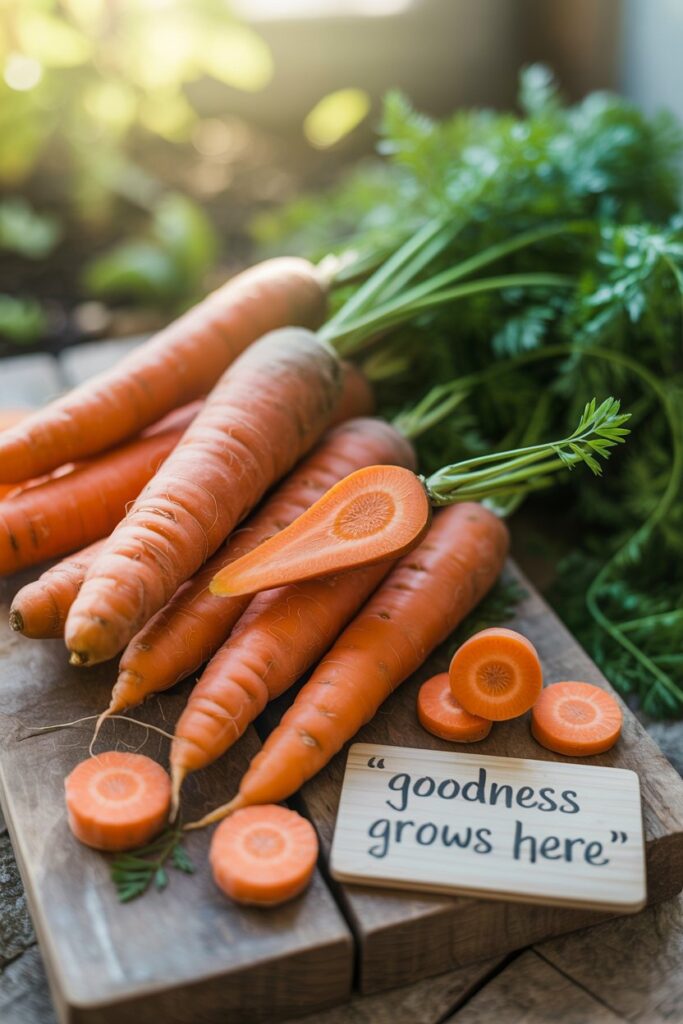
Carrots are great for rabbits. They contain a lot of beta-carotene, which helps eyesight and boosts the immune system. However, don’t give too many because they have high sugar content.
Carrots also provide fiber, which is key for digestion. Fiber keeps the gut healthy and helps prevent constipation.
While carrots are healthy, they should not be the only food. Mix them with other veggies, like leafy greens, to ensure your rabbit gets all the nutrients without excess sugar.
Discover top rabbit-friendly veggies available now on Amazon
Spinach
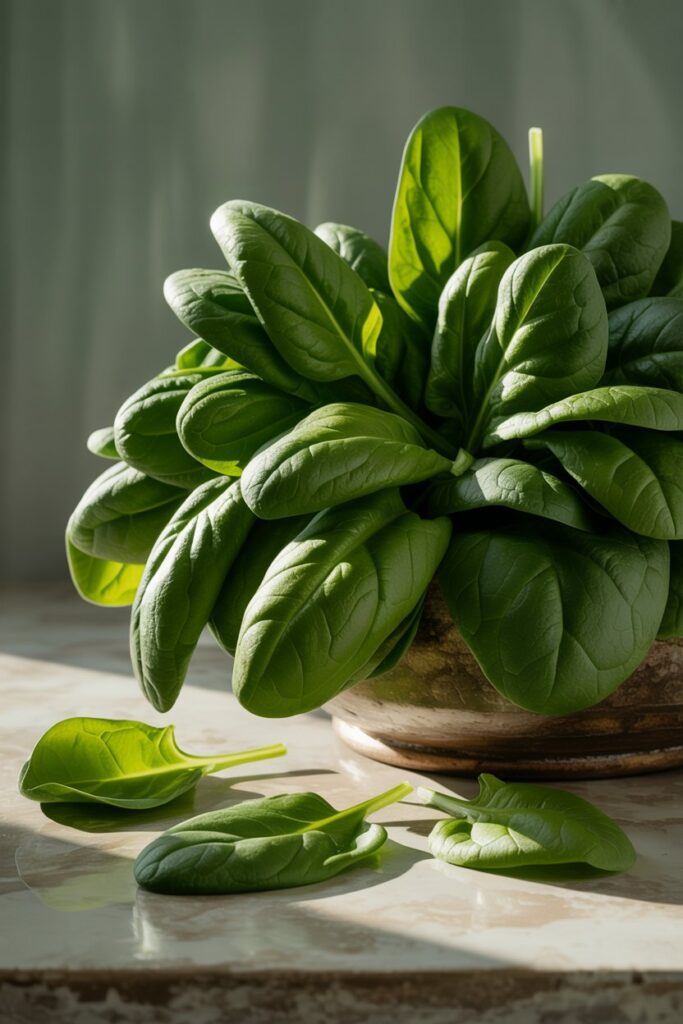
Spinach is a good source of vitamins and minerals. It helps keep a rabbit’s immune system strong. It’s rich in vitamin A, vitamin K, and iron.
However, feed spinach to rabbits in small amounts. It has high oxalate levels, which can cause health problems if eaten too much.
Mix spinach with other leafy greens for a balanced diet. Offering different vegetables helps ensure they get all the nutrients they need without the risk of too many oxalates.
Kale
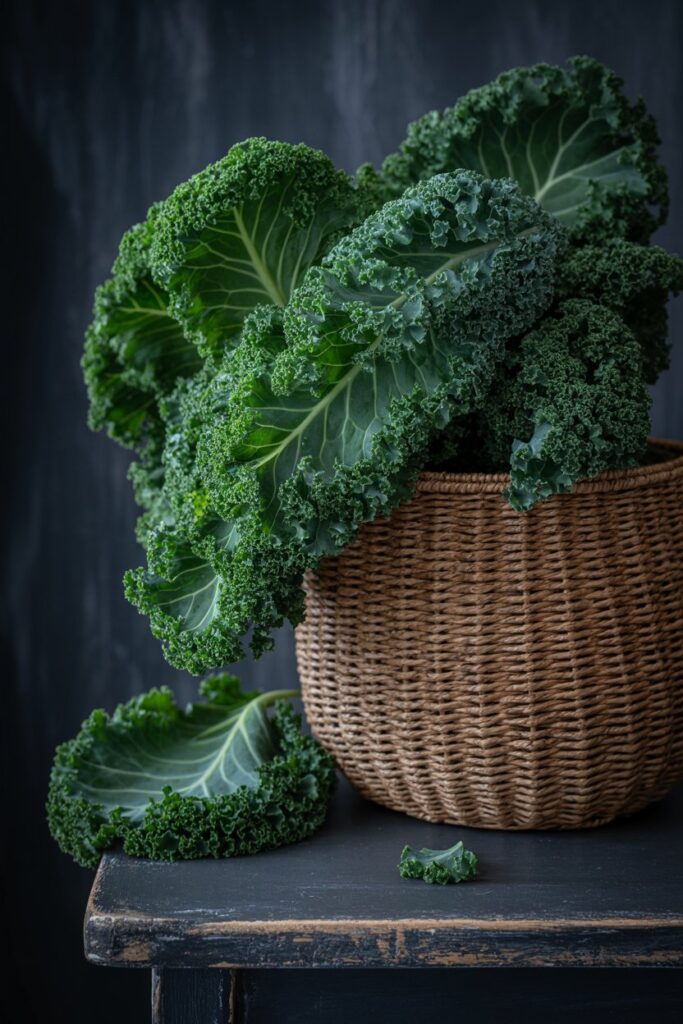
Kale is packed with antioxidants and vitamins that boost your rabbit’s immune system. Adding this leafy green to their diet supports overall health and well-being.
Feeding kale to your rabbit regularly gives them essential nutrients. This vegetable helps ensure they have a balanced diet.
Kale offers many health benefits, including immune support. It’s a nutritious choice that helps keep your rabbit healthy and active.
Shop the best immunity-boosting rabbit vegetables right on Amazon
Broccoli
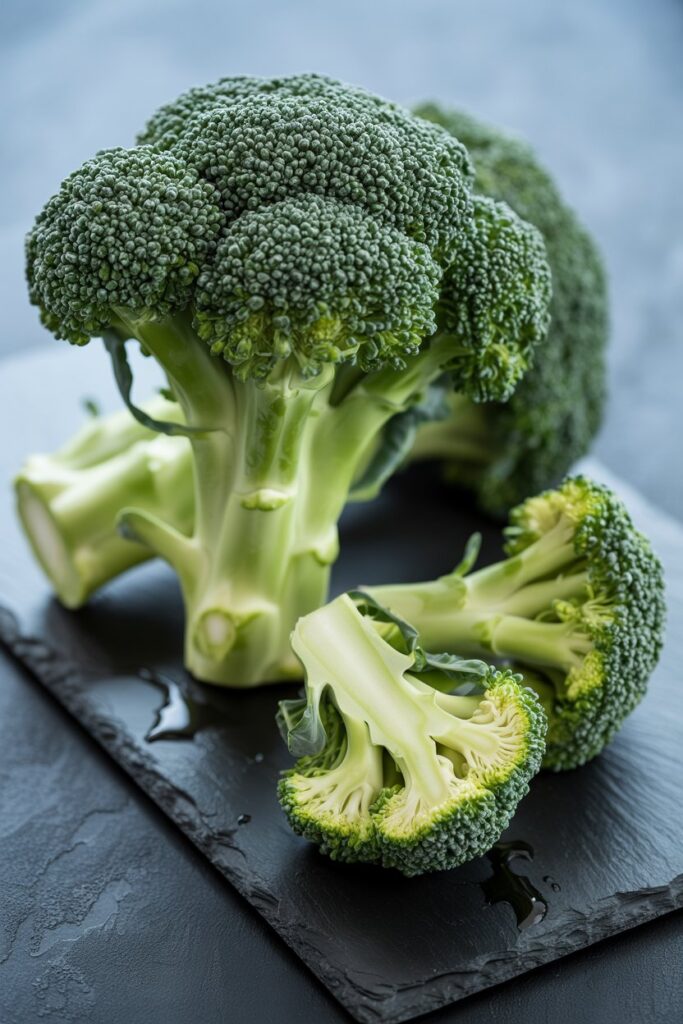
Broccoli is full of fiber and vitamin C. These nutrients help your rabbit’s digestion and immune system. Give it in small amounts to avoid gas.
Rabbits love the crunchy texture of broccoli. This veggie gives them essential nutrients to stay lively and strong.
Always wash broccoli well before feeding it to your rabbit. Offer it fresh. Mixing it with other veggies creates a balanced and tasty meal for your furry friend.
Bell Peppers
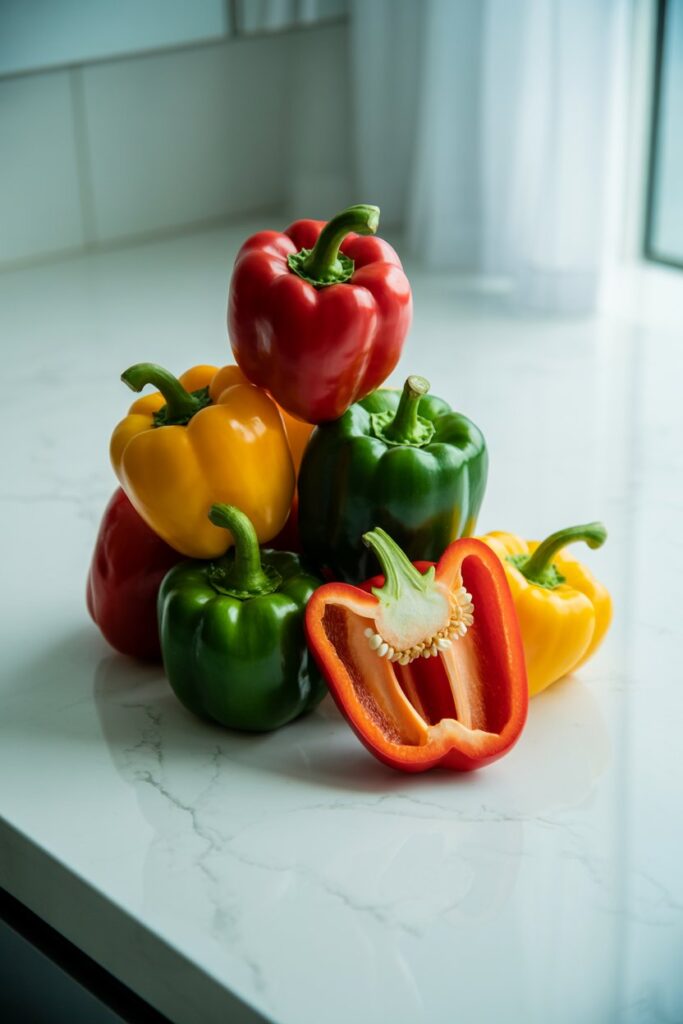
Bell peppers are full of vitamin C and antioxidants. These are great for your rabbit’s immune system. They come in colors like red, yellow, and green. Each color offers nutrients to keep your pet healthy.
Red bell peppers have the highest vitamin C content. This makes them a top choice for boosting your rabbit’s health. They are low in calories, so they make a perfect snack for your furry friend.
Green bell peppers are less sweet but still packed with nutrients. They are a good source of fiber, which helps digestion. Offering a variety of bell peppers in your rabbit’s diet ensures they get a mix of vitamins and minerals.
Check out these healthy rabbit veggie picks on Amazon today
Parsley
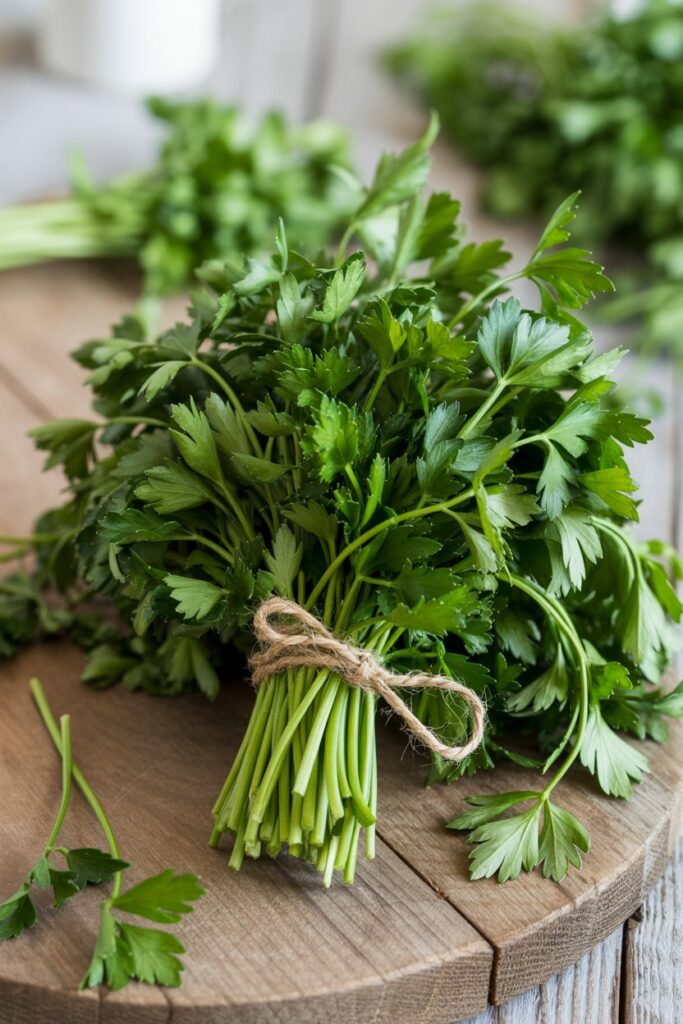
Parsley is a tasty herb full of vitamin C. This vitamin is great for your rabbit’s immune system. It makes a good treat and adds variety to their diet while providing important nutrients.
Adding parsley can give your rabbit a nice change from their usual greens. Its refreshing taste keeps their diet interesting and balanced. Just don’t give too much.
In addition to vitamin C, parsley has other nutrients like vitamin A and iron. These support your rabbit’s health. So, parsley is a valuable addition to their diet when given in moderation.
Cilantro
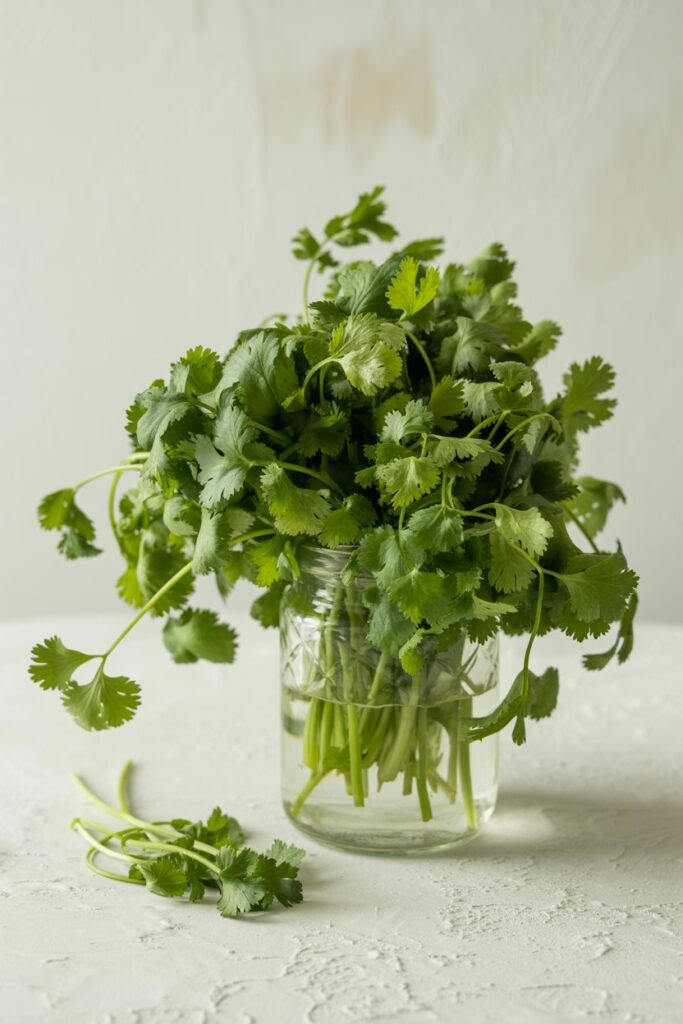
Cilantro is full of vitamins and minerals that benefit your rabbit’s health. It helps digestion and boosts the immune system when given in small amounts. Adding cilantro to their diet offers a tasty and healthy treat.
Rabbits love the fresh, aromatic leaves of cilantro. You can mix it easily into their regular food. This herb is great because it’s rich in antioxidants. These help protect their cells and support overall health.
Feeding your rabbit cilantro adds variety to their meals, making mealtime more fun. Introduce it slowly and in moderation to avoid stomach issues. Always wash cilantro well to remove pesticides.
Basil
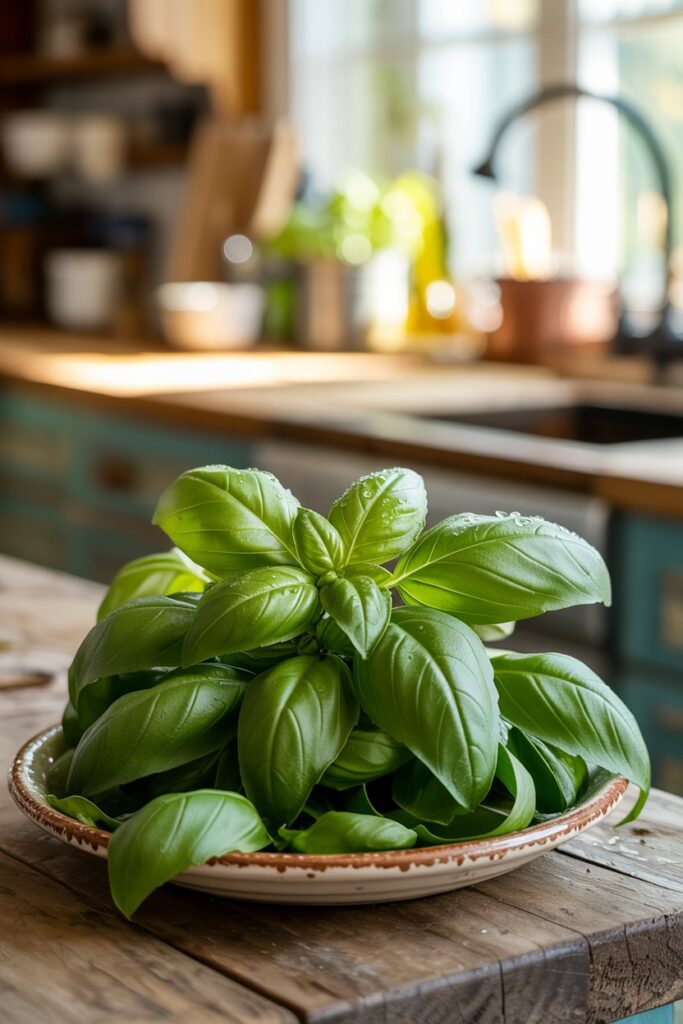
Basil is packed with antioxidants and essential oils. These can help boost your rabbit’s immune system. Adding this tasty herb to their diet now and then can improve their overall health.
Basil is not just flavorful; it has vital nutrients for rabbits. It provides vitamins A, C, and K. These vitamins are important for a healthy coat and good vision.
While basil is safe for rabbits, give it in moderation. Too much can lead to digestive issues. Always introduce new foods slowly to see if your rabbit tolerates them well.
Romaine Lettuce
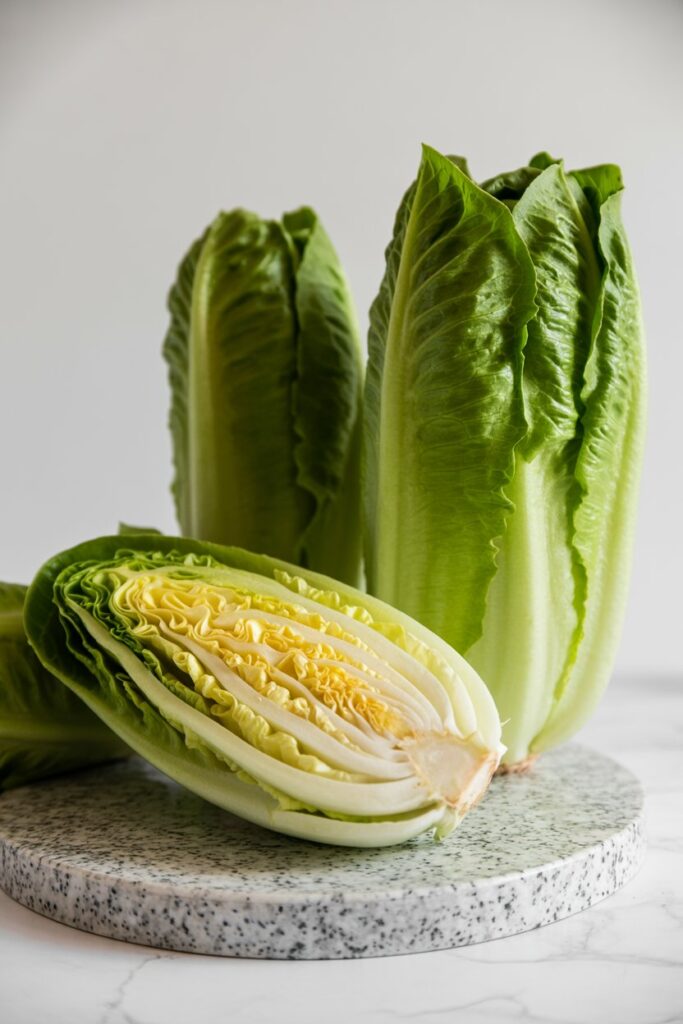
Romaine lettuce is a great choice for rabbits. It has a lot of fiber, which is key for their digestive health. Fiber helps keep their system running well and prevents problems like gastrointestinal stasis.
Romaine lettuce also contains a lot of water. This helps keep rabbits hydrated, which is important for their overall health. Staying hydrated can prevent urinary tract issues, making romaine a beneficial vegetable for your pet.
Additionally, romaine is high in vitamins and minerals, including vitamin A and potassium. These nutrients help with various body functions, like vision and heart health. That’s why romaine is a nutritious part of your rabbit’s diet.
Cucumber
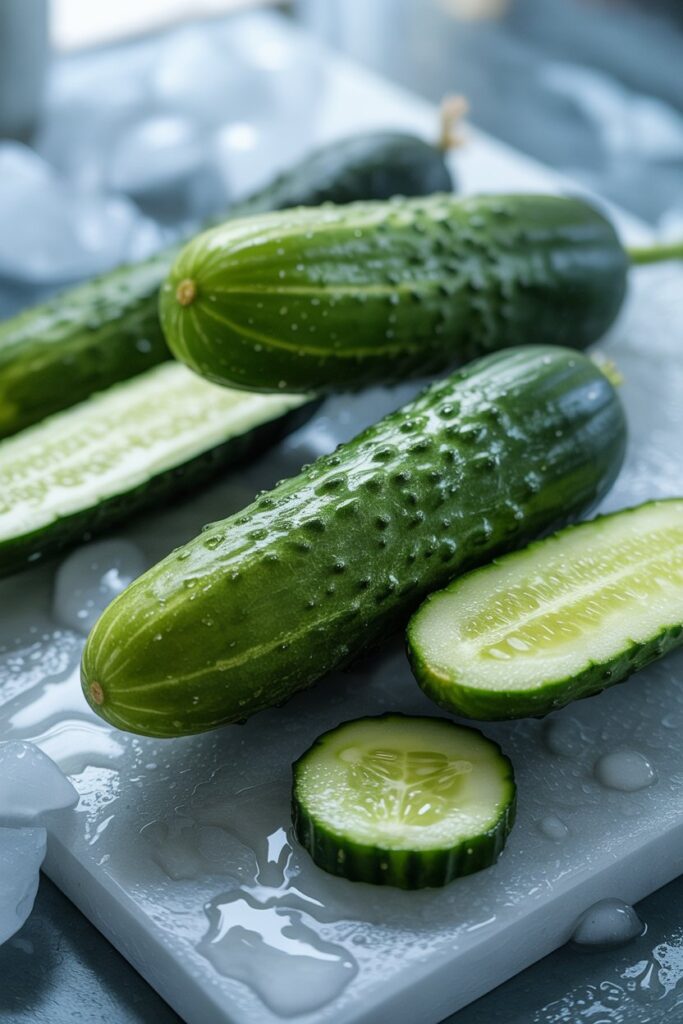
Cucumbers are high in water, helping keep rabbits hydrated in summer. They are low in calories, making them a healthy snack.
Beyond hydration, cucumbers offer vitamins like vitamin K. This vitamin supports blood health and general wellness in rabbits.
Cucumbers make a tasty treat for rabbits, but serve them in moderation. Too much can cause digestive issues. Always wash cucumbers well before serving.
Conclusion
Including these vegetables in your rabbit’s diet can boost their immunity and health. Introduce new foods slowly.
Always watch for any bad reactions. A balanced diet with different vegetables is key to a happy, healthy bunny.
What Vegetables Are Best For Rabbits?
The best vegetables for rabbits are leafy greens like kale, romaine lettuce, and spinach. Crunchy options like carrots and broccoli are also great.
They give your rabbit essential vitamins, minerals, and fiber for good health. Rotate vegetables to keep meals varied and balanced. Also, avoid giving too many high-sugar veggies like carrots each day to prevent health problems.
Can Rabbits Eat Carrots Every Day?
Carrots are safe for rabbits, but give them in moderation. They have high sugar content, which can cause weight gain and digestive problems.
Mix carrots with low-sugar veggies like leafy greens for a balanced diet. Offering carrots a few times a week is best for most rabbits.
Is Spinach Safe For Rabbits?
Spinach is high in vitamins A and K, plus minerals like iron. This makes it nutritious for rabbits. However, it has oxalates that can cause problems in large amounts.
To prevent health issues, feed spinach just a few times a week. Pair it with other low-oxalate greens. Always introduce new foods slowly.
What Vegetables Should Be Avoided For Rabbits?
Some vegetables, like iceberg lettuce, onions, and potatoes, can harm rabbits. They may cause digestive issues or other health problems.
If unsure about a vegetable, research it first. Also, introduce new foods slowly and watch your rabbit’s reaction.
How Often Should Rabbits Eat Vegetables?
Rabbits need fresh vegetables every day for a balanced diet. Offer various leafy greens and safe veggies for essential nutrients.
Aim for at least three different vegetables daily. Pair them with hay and a small amount of pellets for the best nutrition.
